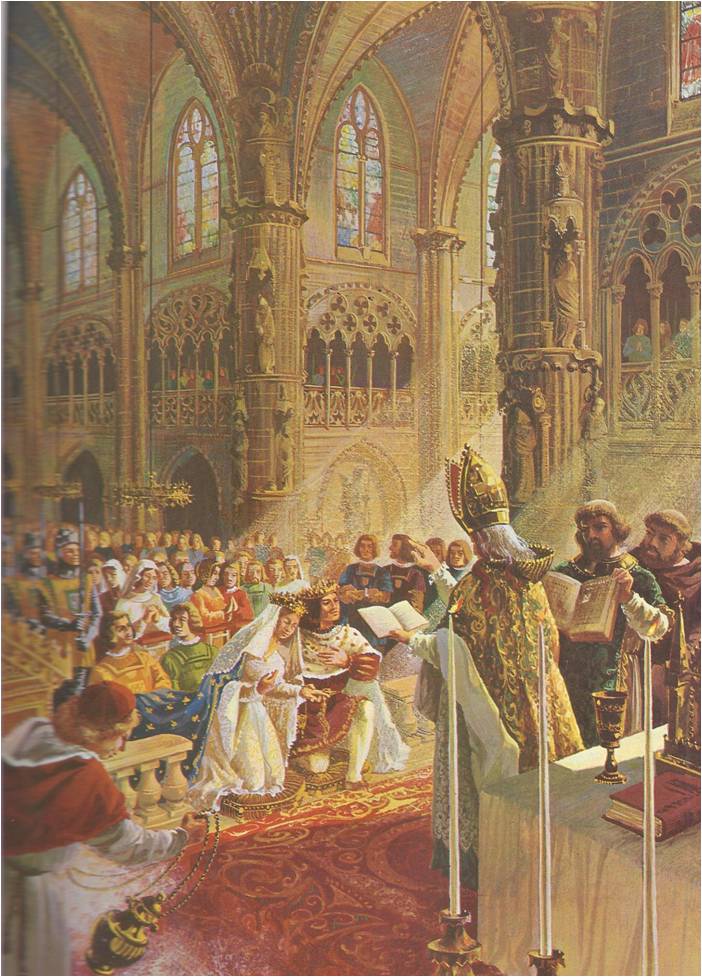The Austrian city of Vienna in 1814 would have dazzled even a Hollywood director. Emperors and empresses, kings and queens, dukes and duchesses — members of ruling families who hoped to recover thrones or to increase their lands — were there. So were leading statesmen from practically every country in Europe. For the so-called Congress of Vienna was meeting to make peace, now that Napoleon had finally been defeated. The Congress was going to set the world right again. The old city was overcrowded. Hotel rates soared and homeowners rented their houses at unheard of prices. Laundresses grew wealthy and …
Read More »Tag Archives: Sardinia
The Roman Empire Preserves and Extends Civilization
Today we speak the words, “I am a World citizen,” with pride. To the people of the ancient world the statement, “I am a Roman citizen,” was a badge of high honour. Beginning as a small city state in Italy, Rome grew into a vigorous republic and finally into an empire so mighty that it included the whole of the Mediterranean world. Even after Rome’s grandeur had waned, its influence lived on among later peoples. Rome’s history is a reminder that the destiny of a nation rests more on the wisdom of its leaders and the character of its people …
Read More »The Unification of Italy 1831-1870
ITALY HAD long been divided into small states. All their governments, except that of the Kingdom of Sardinia, were unpopular and continued to rule largely because they were supported by Austria. Italians had a special reason for wanting freedom and unification. They could remember that once the Roman Empire had ruled the world and that later Italy had been the home of free republics. For three hundred years Italy had been invaded and plundered again and again. The last of the invaders was Austria and before the Italians could form one nation they would have to free themselves from the …
Read More »The Revolution of 1848; 1830-1848
LOUIS PHILIPPE always spoke of himself humbly as the “citizen king.” Although he was dignified, friendly and tried to do things that would make him popular, his government could not satisfy the needs of the people. The reason was that only one out of every thirty Frenchmen had the right to vote. The Chamber of Deputies represented only the nobles and the rich upper crust of the middle class and often it did not even debate questions that were of importance to the great majority of the people. Many Frenchmen did not like the new king. The republicans were opposed …
Read More »Emperor of the French 1804 -1815
On December 2, 1804, in a ceremony of great pomp and splendour at the cathedral of Notre Dame in Paris, Napoleon Bonaparte was crowned Napoleon I, Emperor of the French. Pope Pius VII was there. He had come from Rome to offer his blessing and to place the crown on the head of the new emperor but Napoleon did not do what was expected of him. Instead of kneeling, he took the crown from the Pope’s hands and put it on himself. He also placed a crown on the head of his wife, Josephine. Only twelve years had passed since …
Read More »Ferdinand and Isabella Unite Spain 1469-1700
IT WAS Wednesday, October 18, 1469 and Princess Isabella of Castile and Prince Ferdinand of Aragon were being married. At the end of the beautiful ceremony, the two thousand guests cheered and the entire city of Valladolid began a week of celebration. Isabella was overjoyed, for she loved her husband and he loved her. They seemed well matched. Isabella was eighteen, tall, blonde and blue-eyed – “The handsomest lady I ever beheld‚” one nobleman said. Ferdinand was slightly shorter than his wife, but he was handsome. Isabella was intelligent, very religious and strong-willed. Ferdinand, too, was intelligent and he was …
Read More »Rival Caliphs and Amirs in the West A.D. 750-1492
IN 750, when the first Abbasid caliph ordered a wholesale massacre of the family that had ruled before him, hardly any of the Omayyads came out alive. One who did was a twenty-year-old youth named Abd-al-Rahman, a grandson of the tenth Omayyad caliph. Fleeing from a Bedouin camp on the Euphrates, he wandered in disguise through Palestine, Egypt and North Africa. Again and again he barely escaped being discovered and seized by Abbasid spies. His desperate flight lasted, altogether, five years. Finally he came to the town of Ceuta, on the northwest coast of Africa, where some Berber chieftains, who …
Read More »The City of Aeneas 1000 B. C. – 500 B. C.
The minstrels who wandered from country to country in the ancient world told a legend of Aeneas, a Trojan prince. According to the story, Aeneas escaped the Greeks who broke through the walls of Troy and fled to his ships with a little band of warriors. Rowing out onto the Hellespont, they watched while a great fire destroyed their city and they knew that they could never return to Troy. Then, the storytellers said, the gods spoke to Aeneas, telling him to turn his ships west. They commanded him to sail away from the Hellespont and the Aegean Sea, past …
Read More »






